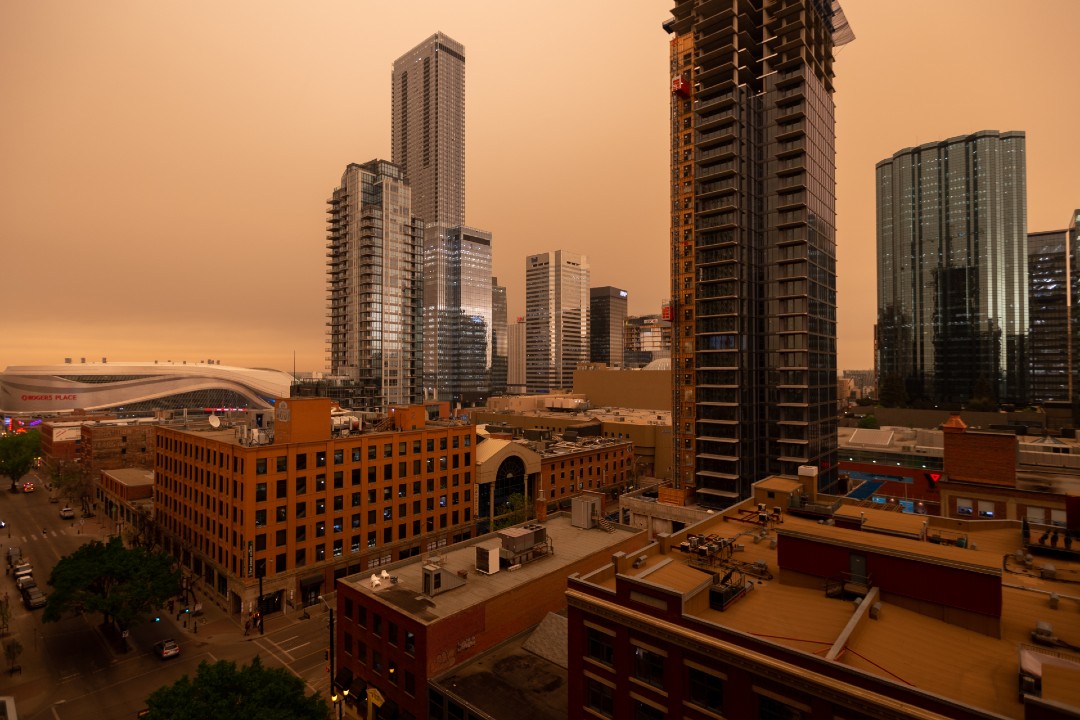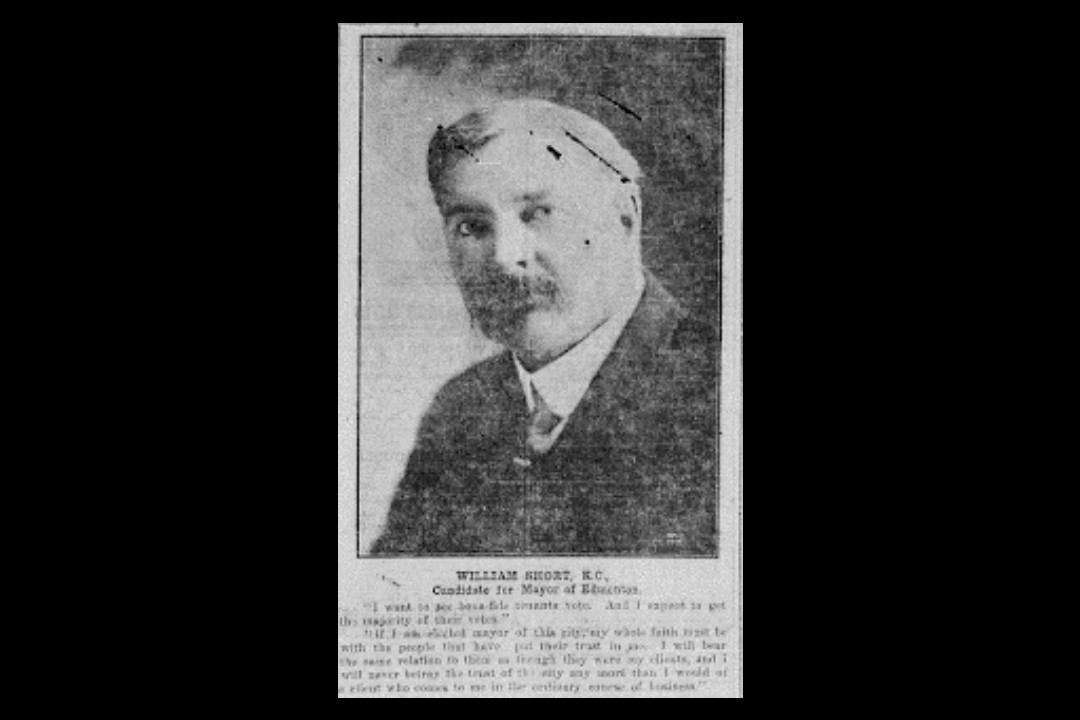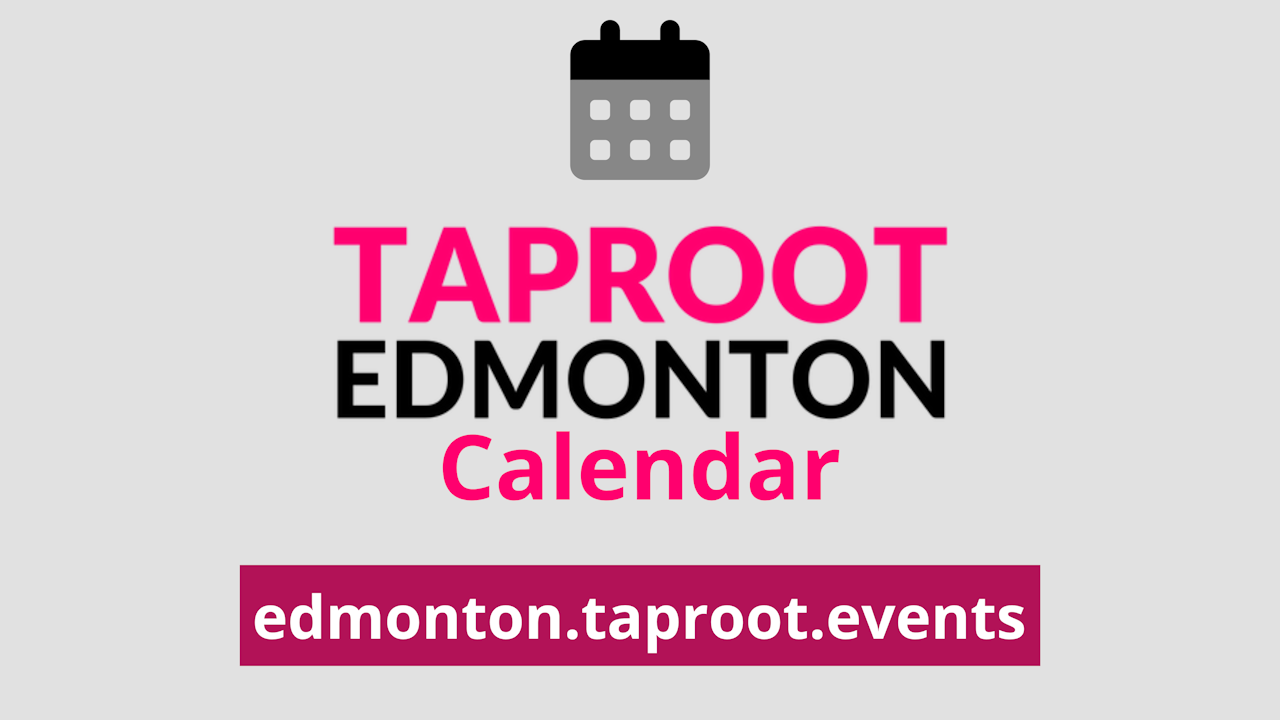
Report suggests Edmonton's emissions are decreasing too slowly
A report that updates Edmonton's progress on its carbon budget shows that the city was cloaked in wildfire smoke for several weeks cumulatively in the past two years.
During the 2023 wildfire season, the report notes, Edmonton had 36 days with an air quality health index of seven, posing a high health risk. During the 2024 season, Edmonton had an air quality health index of seven for 15 days.
Jacob Komar, the co-chair of the Energy Transition Climate Resilience Committee, told Taproot that the cumulative figure in the carbon budget report jumped out at him, especially when one remembers the smoky days were often paired with hot temperatures.
"This is impacting Edmontonians on a yearly basis," Komar said.
The cost of climate change and the climate impacts of budget decisions are explored in the update to Edmonton's carbon budget, which was presented in a report to city council in November alongside the operating and capital budget updates.
The report shows emissions are trending down in Edmonton, but not fast enough to reach the goals outlined in the carbon budget. The budget is one action the city has taken after declaring a climate emergency in 2019.
"In a way, the report is not a surprise," Komar said. "It kind of backs up what has been happening in previous years. We knew this is the path we're headed on. We know we're not tackling emissions in the way that we need to in order to meet our commitments that we made through our declaration of a climate emergency."
Extreme weather has an economic impact on top of its physical, mental, and emotional risks. The report notes Edmonton spent $16 million responding to wildfire evacuees in 2023. Komar said there will be more situations that highlight the cost of inaction on climate change in the years to come.
Edmonton introduced a carbon budget in late 2022 during budget deliberations. Unlike the operating and capital budgets, the carbon budget is not debated or modified. Instead, it is meant to show council how its funding choices could increase or decrease carbon emissions. City administration said Edmonton was the first city in Canada and the second in the world to use a carbon budget.







